Post-pandemic season: Tourists return to Georgia
The summer tourist season has begun in Georgia. After the crisis period caused by the coronavirus pandemic, this year foreign tourists finally got the opportunity to visit Georgia.
Despite the fact that travel has become more difficult, and some restrictions still apply in Georgia (the curfew was canceled only on July 1), the first guests have already begun to arrive in the country.
They were eagerly awaited by entrepreneurs engaged in the tourism sector, regardless of the size of their business. Owners of small cafes or restaurants, small hostels or large luxury hotels have the same answer to the question of what they expect from this tourist season – they hope to survive.
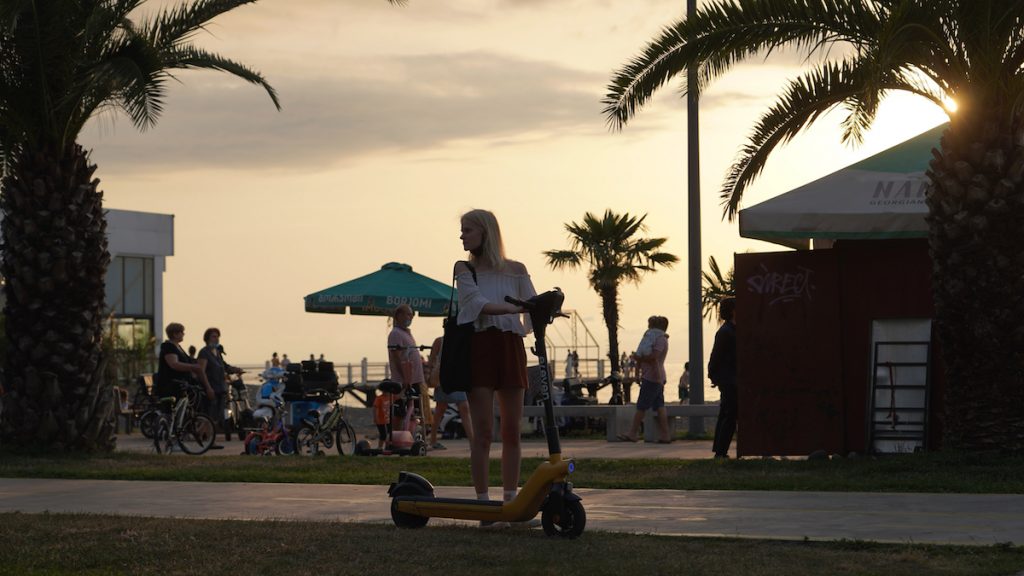
June in Batumi is the very beginning of the season. The weather is fine in the city. To the delight of holidaymakers, there has been no rain in recent days.
Children are especially happy. “Dad, watch me swim”, a blond boy shouts out of the water to his parents who are sitting under an umbrella and taking pictures of the child.
Both local and foreign tourists are happy to pose in front of the sea, ask each other to take pictures of them, communicate with ease.
- Anaklia: Georgia’s forgotten Black Sea resort
- ‘Frozen season’: How the pandemic affected Georgia’s winter resorts
- Georgia: what fate awaits tourism?
Rest, entertainment, new acquaintances, beautiful photos, sunny beaches, local cuisine – all this awaits tourists in this city, which is located 360 kilometers from Tbilisi and attracts guests with its infrastructure and cultural diversity.
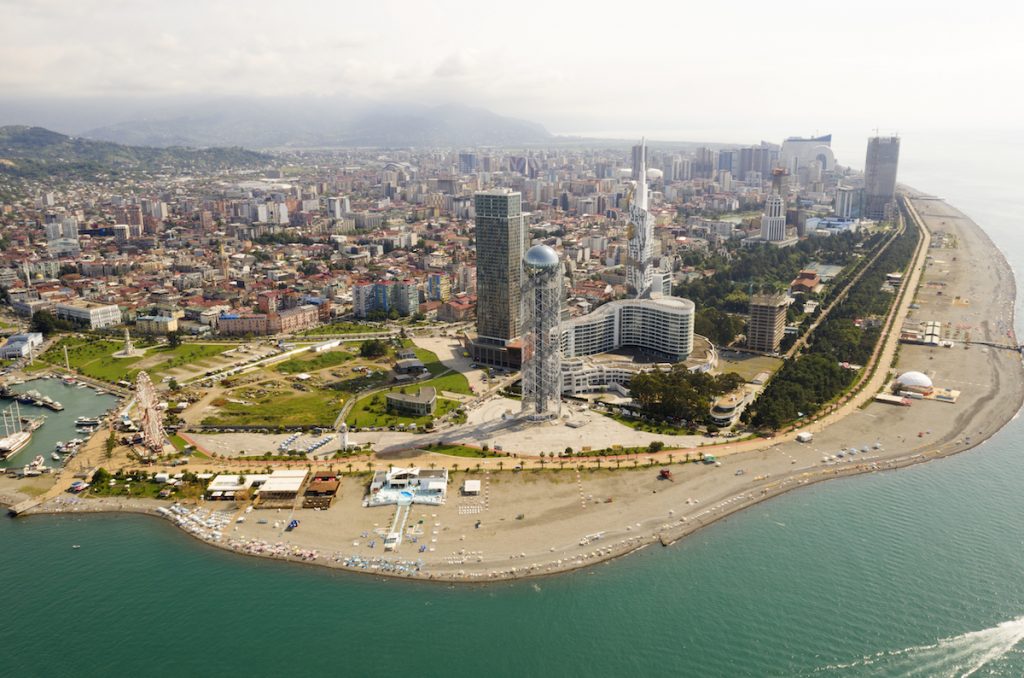
“I like it more here than at home. Here the sea, the mountains are practically a paradise for tourists”, – says Tatiana, who moved to Georgia from Ukraine four years ago.
She says she missed the crowds of tourists which give Batumi a lively rhythm and energy. “I have a feeling the tourist season hasn’t quite started yet”, she says, looking around the half-empty beach.
There are really few people on Batumi Boulevard. Many are riding bicycles and scooters freely.
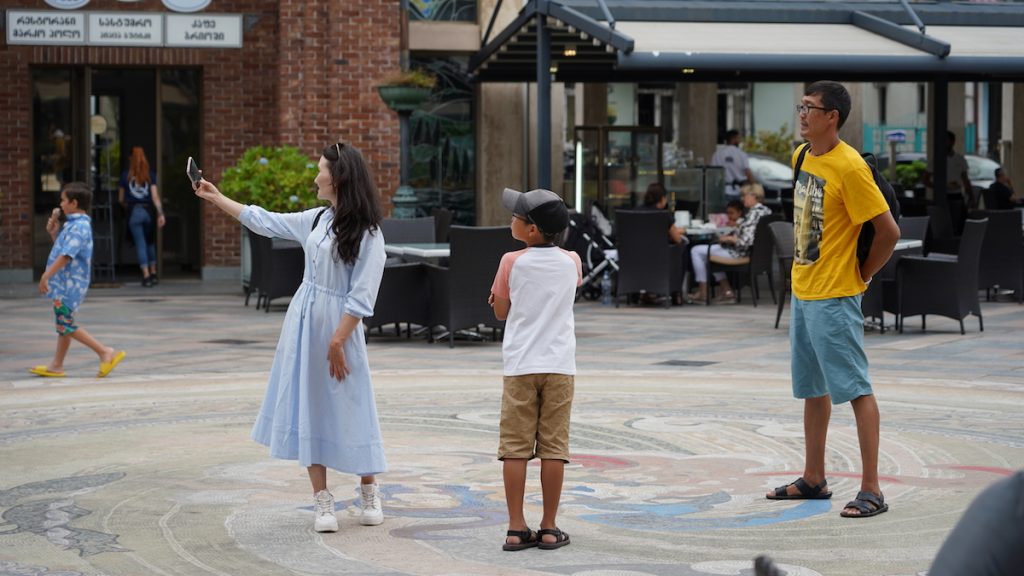
How to come to Georgia
Georgia opened air borders for foreign citizens from March 1, and land borders – from June 1.
According to the information of the Ministry of Foreign Affairs of Georgia, as of July 5, foreigners who have completed a full course of vaccination can fly to Georgia by plane without any additional requirements. In the event of crossing the land border, the vaccinated tourist must additionally have a negative test result for coronavirus, made 72 hours in advance.
In the absence of vaccination, the foreigner must register online in advance and fill out the form link . When crossing the border, they must submit a test with a negative PCR test and within three days they must do another test at their own expense.
The exception is only valid for Indian citizens or travelers who have visited this country in the last 14 days. Along with the test, they are required to go through a 14-day quarantine at their own expense.
However, the Georgian authorities warn travelers that the rules of entry may change depending on the epidemiological situation. You can find more information on the website of the Georgian Foreign Ministry .
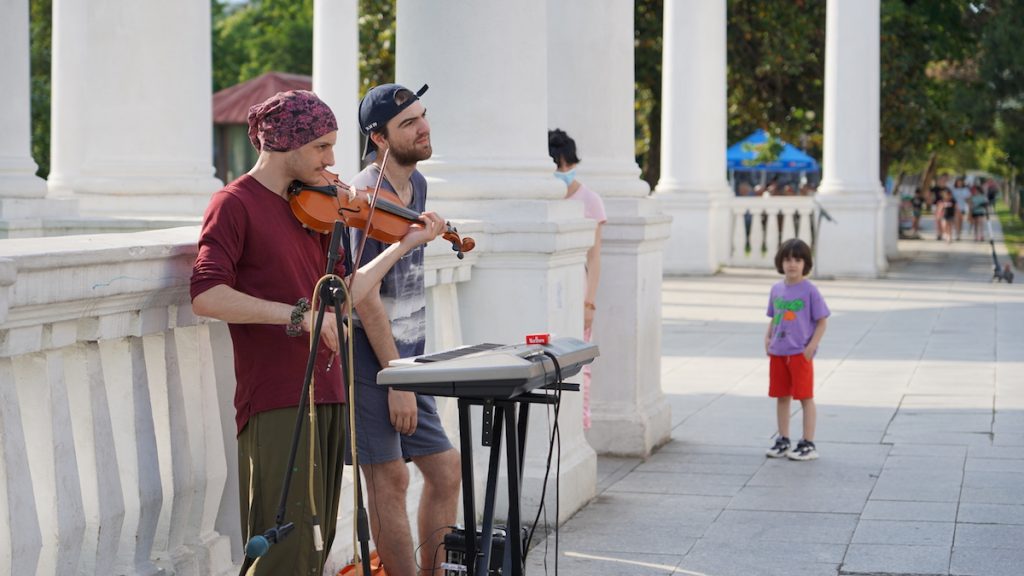
As of the beginning of July, almost all previously existing restrictions have been lifted in Georgia. The curfew has been removed, as well as the requirement to wear masks on the street. However, in enclosed spaces and transport, wearing masks are still required. ;
Restaurants are open but only open until 00:00.
According to statistics, in June 2021, 146,000 tourists visited Georgia which is a whopping 287% higher than June 2020. But this is also 80% less than in June 2019.
In total, in 2019, which became a record year for Georgia, more than 9.3 million foreigners visited the country. In 2020, after the start of the pandemic, the number of visitors fell by more than 90%.
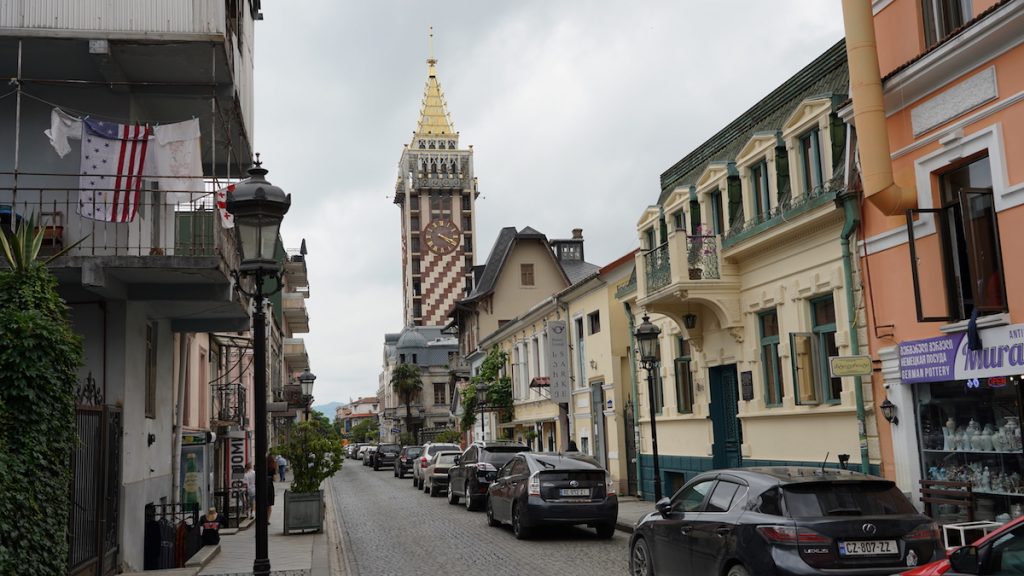
Season has begun
A young guy in the center of Batumi sells souvenirs, miniature toys and jewelry.
“We traded here last year too when I also helped the family, but it was a bad year. They say that more vacationers will come this year, and we are also looking forward to this. We put up another counter 200-300 meters from here, my mother sells there”, he says.
Music comes from a restaurant nearby. It is especially crowded here. The service staff meets guests at the stairs of the restaurant and escorts them to tables. Musicians play jazz.
“Our restaurant is very busy. This is because we have a very large open space. Clients avoid confined spaces. Therefore, we decided to focus on a comfortable outdoor environment ”, says Irakli Tavartkiladze, co-owner of Veranda Acropolis restaurant.
He opened a restaurant in 2019 and, as he himself says, has faced difficulties since then.
“Then, as you remember, Russia closed the border, it was ‘Gavrilov’s night ‘ [riots in Tbilisi due to the visit of Russian State Duma deputy Sergei Gavrilov as a result of which Russia stopped air communication with Georgia ] and related difficulties. At that time they did not know about our restaurant yet. There was already a pandemic in 2020, and we had mostly Georgian clients. This year, foreigners also come to us, and we can say that compared to 2019, we have three times more work”.
Irakli’s optimism is based on the gradually increasing number of tourists.
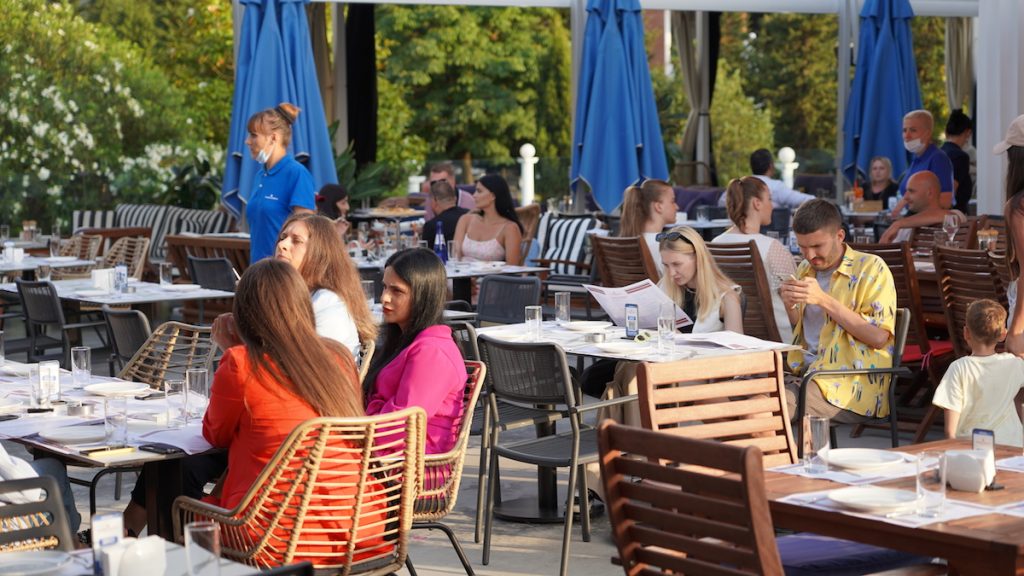
Most tourists visit Batumi Piazza – this square which opened in 2010, is located in the city center and is made in the Italian style – with stained glass windows, marble mosaics and a large space between buildings.
“The mosaic was created from an original sketch [by a Georgian artist] Natalie de Pita-Amirejibi” , the guide tells a group of Russian-speaking tourists.
The village of Kaprovani is located 47 kilometers from Batumi, on the Black Sea coast.
“We are booked all June and July, mostly foreigners. We are also looking forward to local customers who made reservations in May”, says Eka Tavdumadze, founder of Family Nest in Kaprovani.
In 2019, Eka and her husband took a large loan from the bank and built three identical cottages on the Black Sea coast.
Burgundy cottages, separated from each other by a bush hedge, attract attention even from the road. Initially, the cottages were not planned to be separated from each other, but the pandemic introduced its own rules – it was decided to isolate the cottages for the safety of guests.
“Last year, all foreign bookings were canceled and we were practically left at zero and a loan to pay. We thought there was no way out, but we survived due to the fact that Georgian clients decided to spend their holidays with us”, says Eka.
Guests from Russia are now resting in Kaprovani cottages.
Ekaterina Chegamova says that initially she and her friends could not decide where to go – to Turkey or to Georgia.
“We do not regret choosing Georgia. The weather is good, the sea is beautiful. First we rented a house here for two days, then decided to stay because we liked it very much. Nice beach, far from city noise, cottages are comfortable ”, says Ekaterina, who is staying in Kaprovani with her son.
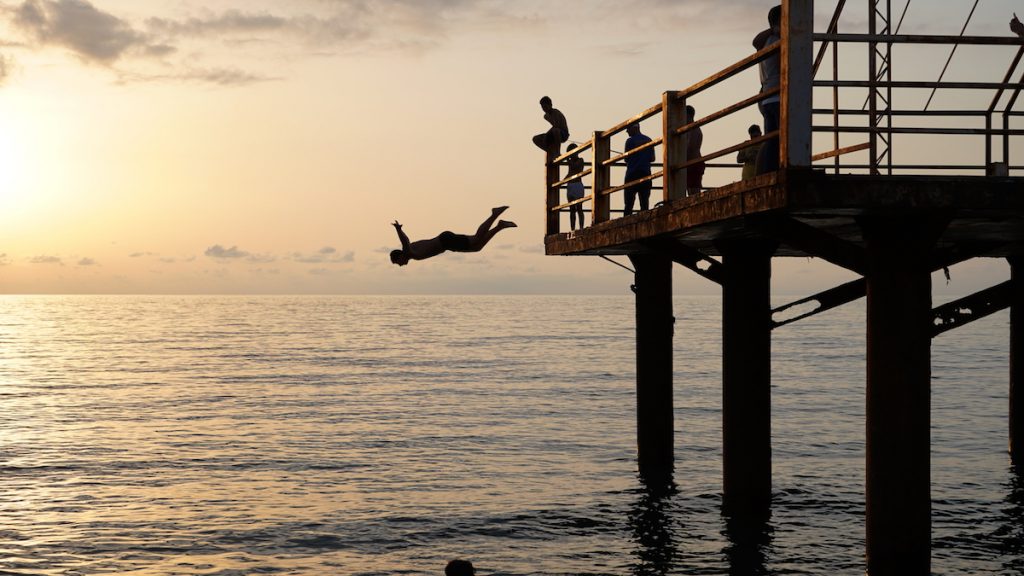
The tourist season officially started on June 15, although foreign guests began arriving in the region since April, says Tamar Kaikatsishvili, first deputy chairman of the Department of Tourism and Resorts of Adjara [an autonomous republic within Georgia with a center in Batumi].
“At this stage, flights to Batumi mainly fly from Israel, Ukraine, Belarus, Kazakhstan, Turkey and Saudi Arabia, but soon the United Arab Emirates, Armenia, Poland and the Baltic countries will be added to this list” , says Kaikatsishvili.
According to her, this year new tourist attractions await the guests of Adjara, such as a canyon in Uchkho, an extreme cycle path in Keda-Shuakhevi, new picnic spots in Chirukhi, Kapnistavi and the village of Shuamta.
“In addition, guests will be able to travel along new tourist routes in the Gorjomi gorge, Chvana-Kintrishi gorge and Kapnistavi. All four national parks and protected areas in the region are officially open to visitors”.
Despite the resumption of flights and the gradual easing of rules, people working in the tourism business still believe that it is too early to talk about profit.
“It will take about two or three seasons to recover the losses incurred during the pandemic, such as now”, says Temur Zoidze, General Manager of Best Western Premier Hotel Batumi.
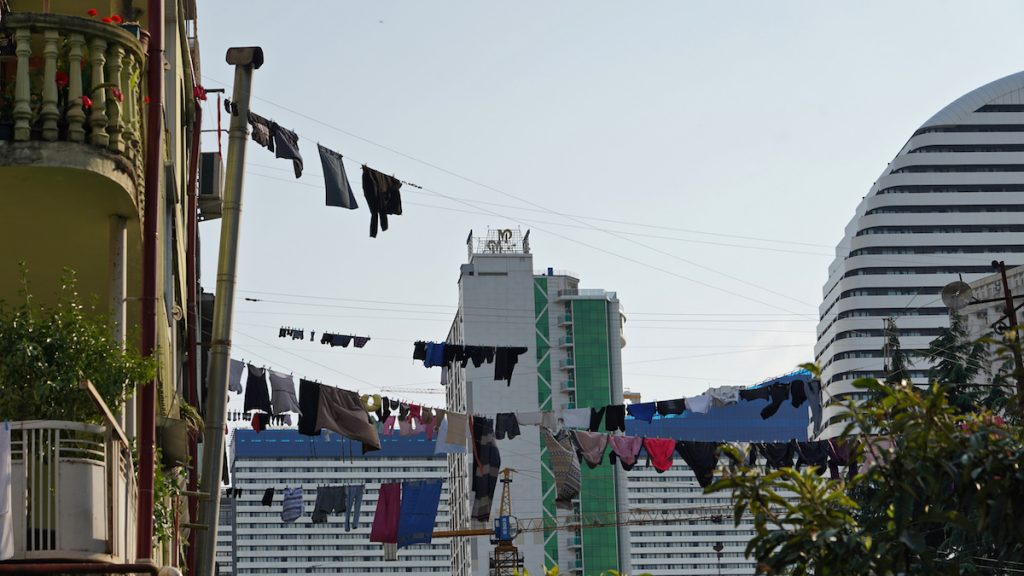
This hotel operates mainly for foreign tourists, so in 2020, when the country was declared a state of emergency due to the pandemic, all bookings were canceled. The hotel was closed for more than a year, but, its costs were still high.
The stories of large or small hotels that have survived the crisis are similar. Some just closed. Cafes, bars and restaurants have gone through an equally difficult period.
Who survived the pandemic and how?
Most tourists who come during the summer season rarely visit Georgia to see only one city. Most of them, at least in parallel with their vacation at sea or in other regions, visit Tbilisi.
Although, at first glance, the historical part of Tbilisi is now full of tourists, cafes, bars, restaurants and hotels cannot yet count on a way out of the crisis.
“Before the pandemic, it was crowded here. There were crowds at night. When we organized events on Fridays, people even stood on the stairs and waited for space to become available ”, says Mariam Chakhava, owner of a bar in the historic Tbilisi district of Sololaki.
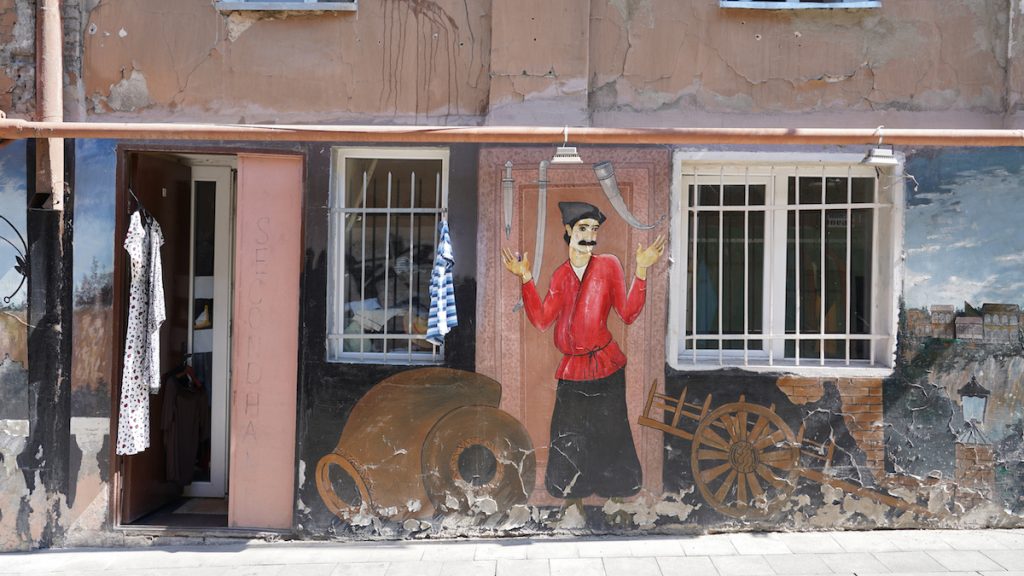
A famous Georgian actor, director and playwright Valerian Gunia lived in the house where the bar is located. This is why the bar, which opened on the site of the cultural heritage site, was named “Valiko”.
During the pandemic, the owners of the bar had to combine the work of bartenders, waiters and cleaning ladies to keep the business afloat. In 2020 and 2021, restaurants and cafes had to work with restrictions and long “breaks”. They were finally allowed to receive visitors indoors only on June 1st.
“On March 14, the police came to us and warned us that they were closing us. We didn’t know how long it would last, a month passed, then two … We had to save money and this affected the number of employees. The other co-owner and I did everything ourselves”, says Mariam.
According to her, revenue fell by 90% compared to 2019. The depreciation of the national currency, the lari, also poses a problem, since the price of renting premises is charged in dollars.
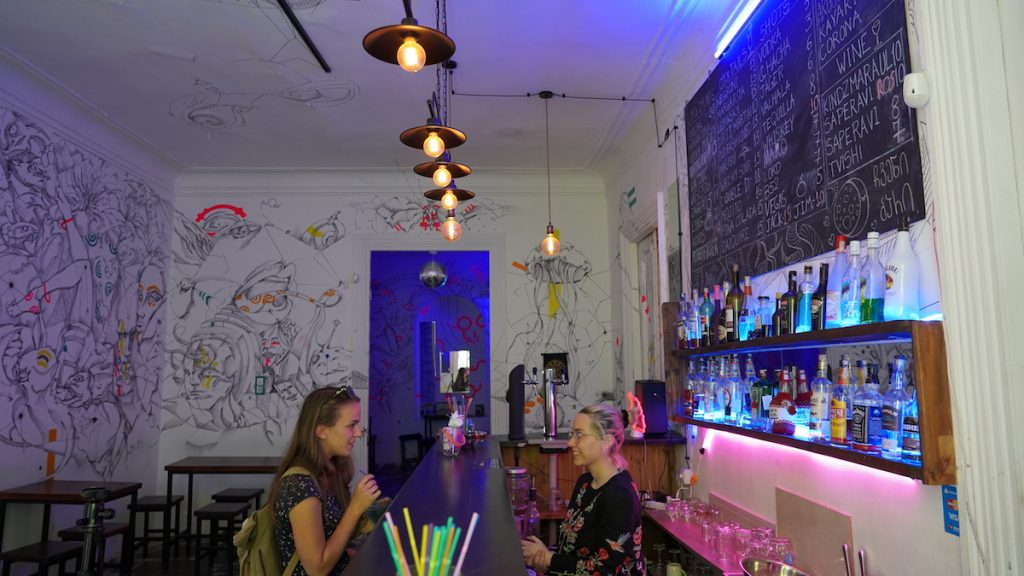
Our Bar, decorated in a minimalist style, which is also located in old Tbilisi, has the same problems. The landlord managed to survive the crisis – during the lockdown, he made a discount on the rent, says its owner Eto Shavshishvili.
“We paid as much as we could, in installments. This helped us not to be in the red at the time of opening. Unfortunately, not all cafes and bars are so lucky”, – says Eto.
Indeed, if in 2019, walking around the old part of Tbilisi, at every step you could see a cafe, bar, restaurant or hostel, now passers-by mostly come across inscriptions on closed objects – “for sale” or “for rent “.
Fewer properties create problems for those who are open – as the owners say, the less variety of the city becomes less interesting for tourists.
“There were many tourists who were attracted by the diversity and learned more about our culture by talking to the guests at the bar. This made them more enjoyable. Unfortunately, there are not as many tourists now as they used to be”, says Eto.
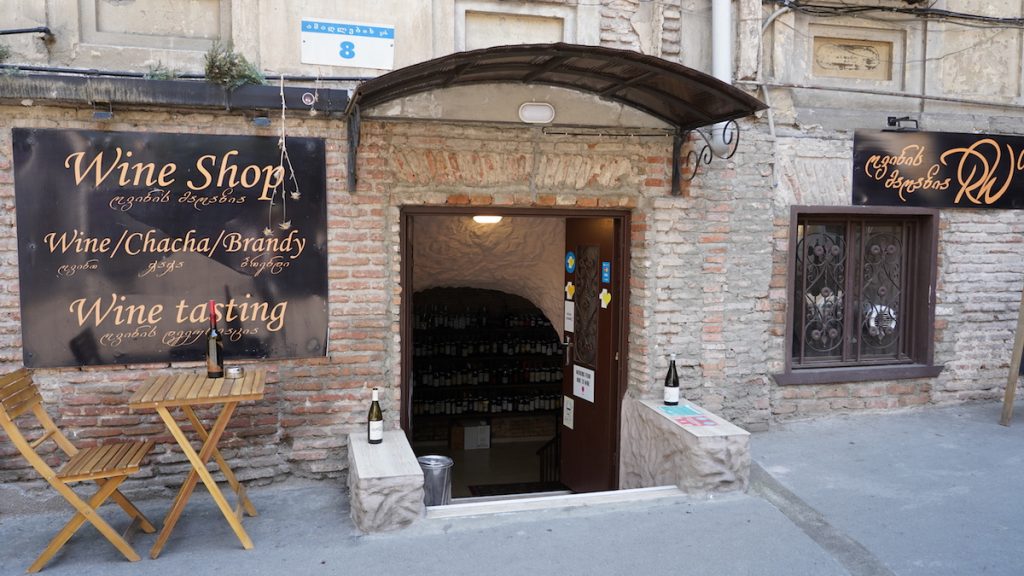
Shops, whose buyers are mostly foreigners, also complain about the lack of tourists, especially the liquor stores. The owner of one of these properties still cannot afford to hire workers.
“We are 100% dependent on tourists. In order to somehow survive, we need a very large flow. What we are doing now is not called a business. Actually, we are fighting for survival. I had two stores and I was free to manage them, but what happened happened. I realized that we cannot keep as many as there were. Unfortunately, I had to fire all the workers and close one store. Nobody supported us, I didn’t get any help”, says Nino Onashvili.
Both hostels and small hotels are trying to survive. The owner of the family hotel “Betlemi 25” Maka Gelovani decorates the courtyard with flowers in pots, & nbsp; tables and chairs.
“The pandemic has created a lot of difficulties. Of course, this is primarily the financial side. There is no business owner who doesn’t have a bank loan. It seems that the banks gave a delay, but in practice we are still at a loss, because for the months that we did not pay, the debts increased”, says Maka.
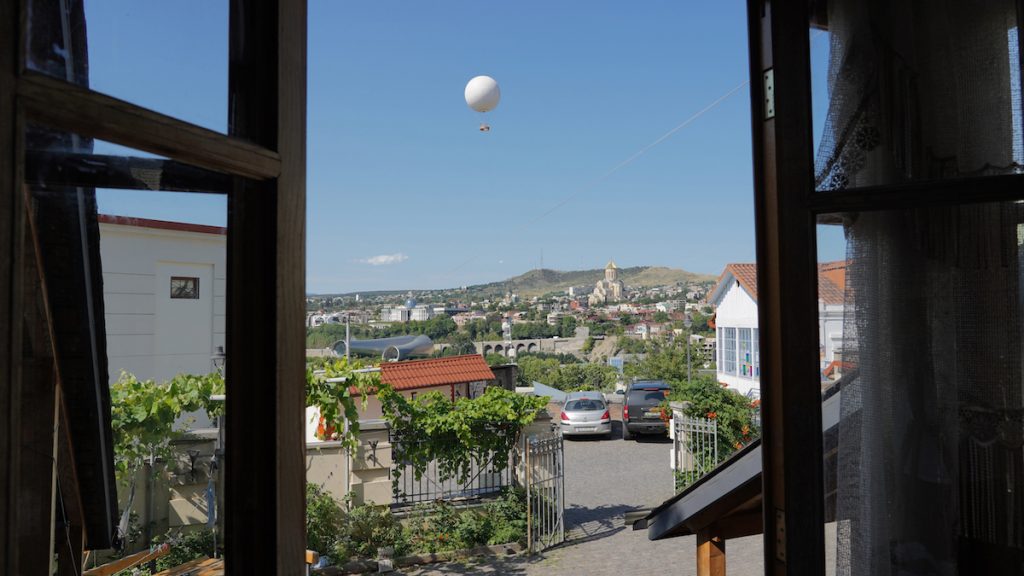
Her family-run hotel already has several foreign guests, although she says this cannot be considered a job compared to previous years.
“We reopened, recruiting guests one at a time. Old guests are still writing to us, planning to come. But it became more expensive for them. Tickets have risen in price, for those who are not vaccinated, tests are needed, and all this is expensive. We hope for the best, of course, but no one knows what will happen”.
Will tourism revive in Georgia?
A year before the coronavirus pandemic, the World Economy and Tourism Council (WTTC) published a report stating that the tourism and travel sector of Georgia created 483,000 jobs – not only those employed in the food and accommodation sector but all people in general involved in the creation and operation of the tourism industry. In the same year, Georgia was ranked 78th in the world in terms of direct employment in tourism and travel.
In 2018, the share of workers employed in tourism and related fields in Georgia was 7.8% percent, Georgia ranked 29th among 145 countries of the world for this indicator. As for tourism itself, 140.3 thousand jobs were directly created in this area.
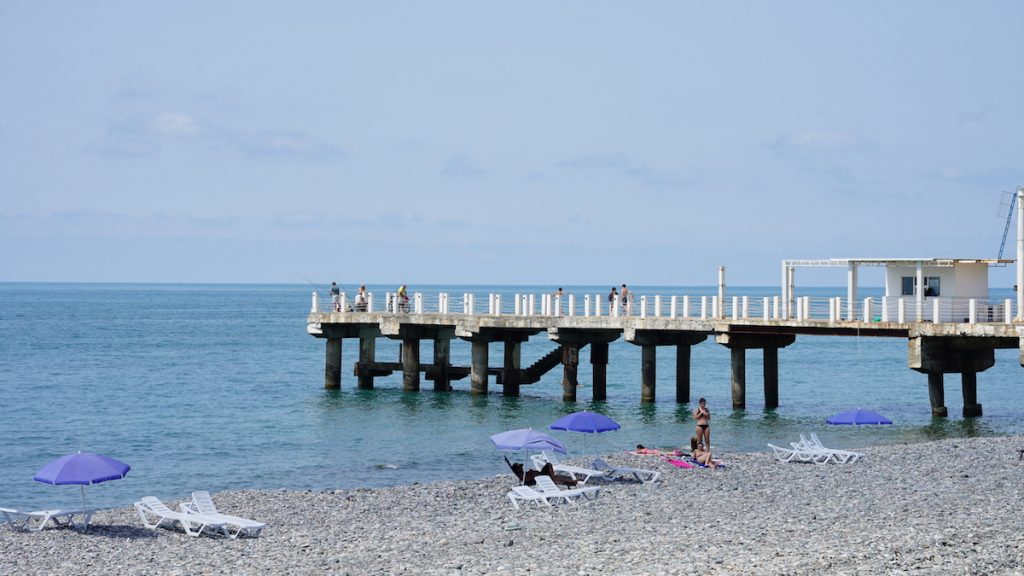
The study authors then stated that these numbers will grow by an average of two percent in the coming years, although the pandemic has changed reality and the closings of facilities or staff cuts have affected all of those numbers.
Now that the borders of Georgia are already open, the government’s expectations are optimistic, but the acting Head of the National Tourism Administration Medea Janiashvili believes that full recovery will take time.
“2019 was an unprecedented year in terms of tourism, it was a very significant growth, so we forecast a full recovery by 2023”, Janiashvili explained.
Supported by RLNE


















